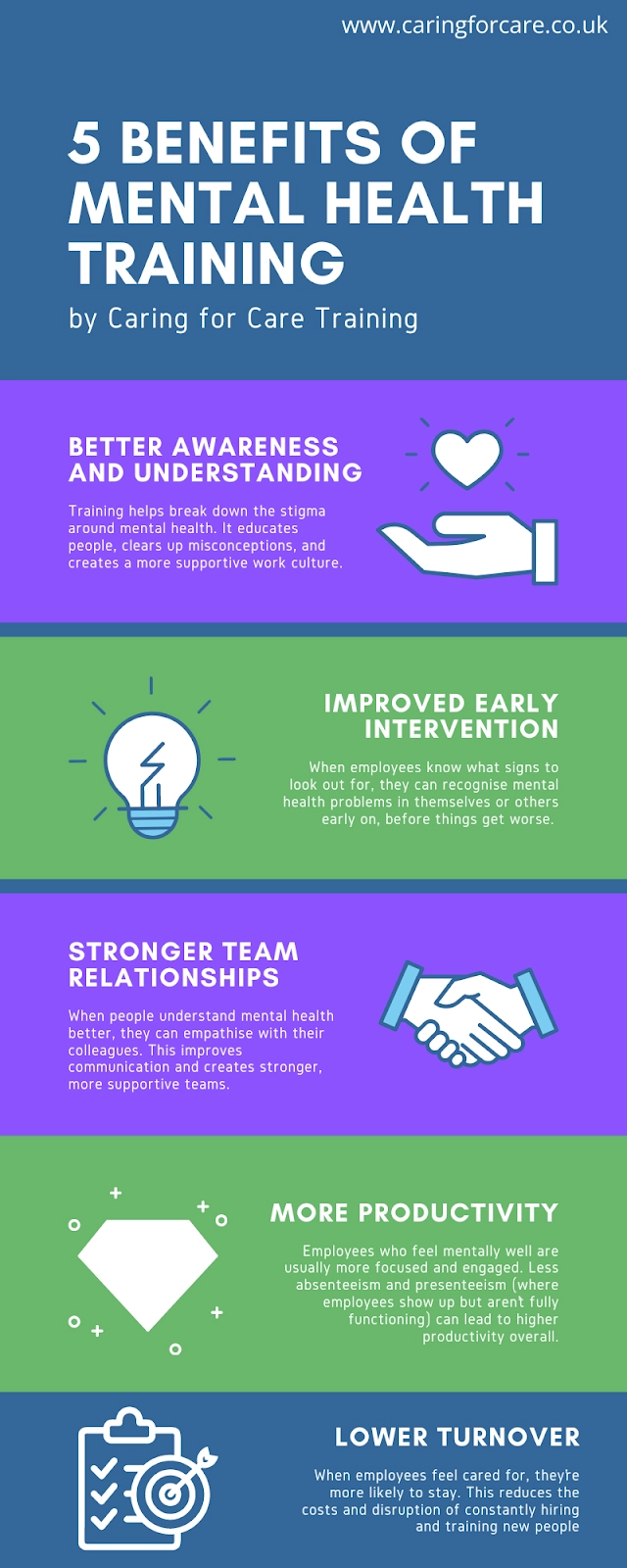In today’s busy work culture, mental health has become more important than ever. We spend a lot of our time at work, so it’s crucial to think about how our jobs affect our mental well-being. This brings up a big question: should employers be providing mental health training applications? And what’s in it for them and their employees?
Why Mental Health Training is a Must
The simple answer is yes, employers should provide mental health training applications. Here’s why:
Mental Health Issues Are More Common Than You Think
Mental health problems affect more people than we realize. The World Health Organization says one in four people will deal with mental or neurological disorders at some point in their lives. That means, in any workplace, a lot of employees could be struggling with their mental health at any given time.
Work Can Be Stressful
Jobs come with pressure—tight deadlines, conflicts with co-workers, juggling work-life balance—it can all add up. Offering mental health training shows that employers understand these challenges and want to help their staff manage them.
Mental Health Affects Job Performance
When people are struggling mentally, their work can suffer too. Anxiety, depression, and other issues can lead to low productivity, missed days, or even people quitting. Training can help prevent that by giving employees the tools they need to cope and stay productive.
It’s a Legal and Ethical Responsibility
In many places, employers are required by law to look out for their employees’ well-being, which includes mental health. Plus, on an ethical level, companies should want to create a workplace where people feel supported.
Your organization can have some persons as mental health first aiders—you can book a training with caring for care for level 2 and 3 first aid mental health training. This will provide the necessary support for team members. Managers and team leads can take level 3 while everyone within the organization takes the level 2 training.
The Benefits of Mental Health Training Apps
So, what are the real benefits of offering mental health training applications?
Here are a few:
Better Awareness and Understanding
Training Apps help break down the stigma around mental health. It educates people, clears up misconceptions, and creates a more supportive work culture.
Catch Issues Early
When employees know what signs to look out for, they can recognize mental health problems in themselves or others early on, before things get worse. This leads to better outcomes for everyone.
Happier, Healthier Employees
Training often includes tips on managing stress, finding work-life balance, and self-care. This can lead to a more content and mentally healthy workforce.
Reduced Stigma
Talking openly about mental health at work helps break the silence. Employees are more likely to speak up and seek help if they don’t feel there’s a stigma attached.
Stronger Team Relationships
When people understand mental health better, they can empathize with their colleagues. This improves communication and creates stronger, more supportive teams.
More Productivity
Employees who feel mentally well are usually more focused and engaged. Less absenteeism and presenteeism (where employees show up but aren’t fully functioning) can lead to higher productivity overall.
Lower Turnover
When employees feel cared for, they’re more likely to stay. This reduces the costs and disruption of constantly hiring and training new people.
Better Company Reputation
Companies that invest in mental health get a good reputation. This can help attract new talent, especially from younger generations who value mental health and work-life balance.
How to Start Mental Health Training at Work
It’s clear that mental health training is beneficial, but how can employers go about implementing it?
Here are some tips:
- Take a Broad Approach
Mental health training apps should be just one part of a bigger plan that includes things like flexible work policies and access to mental health support. - Offer Training Regularly
Don’t make mental health training apps a one-off event. Keep it going so employees stay engaged and the topic remains top of mind. - Involve Leaders
If company leaders get involved and openly support mental health training, it’ll have a bigger impact. Employees are more likely to take it seriously if management leads by example. - Tailor It to Your Workplace
Every workplace is different, so make sure the training reflects the specific challenges your employees face. - Bring in the Experts
It’s a good idea to bring in mental health professionals to run the training sessions. Their expertise will make the training more credible and effective. - Get Feedback
Ask your employees for feedback after each session. Use their insights to keep improving the training and making it relevant to their needs.
Conclusion
In today’s workplace, mental health can’t be ignored. It’s not a matter of whether employers should offer mental health training apps—it’s about how soon they can get started.
The benefits are clear: happier, healthier employees, a more productive and supportive workplace, and a better reputation for your company. By providing mental health training, employers send a powerful message—they genuinely care about their employees’ well-being.
This not only meets legal and ethical standards but also sets the company up for long-term success. The bottom line is that prioritizing mental health at work isn’t just a nice idea to have—it’s essential for workplace growth and well-being. The time to start is now.





